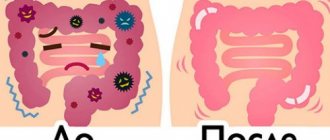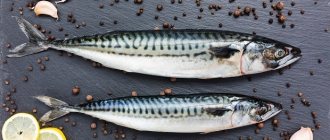- Efficiency.
Fasting as a method of losing weight and healing the body has long proven its effectiveness. For decades, it has been studied by a huge number of scientists, among whom a major contribution was made by the Japanese biologist Yoshinori Ohsumi. He declared and proved to the whole world that refusing to eat foods allows you not only to cope with excess weight, but also to rejuvenate the body, for which he received the Nobel Prize in 2021.
The scientist spent a long time studying the features of fasting, as well as its connection with spiritual practices. As a result of research, I found out that when there is insufficient supply of substances from the outside, cells begin to independently utilize all the accumulated “garbage”, which is actively deposited by the body as a reserve. Fasting techniques by Yoshinori Osumi - effective cleansing of waste and toxins.
History and essence
Yoshinori Osumi - fasting (the method is presented in the article in order to familiarize yourself with its features and basic principles), which has the following main advantages:
- lowers blood pressure;
- reduces the development factor of heart pathologies;
- reduces the likelihood of breast cancer;
- increases protection against ultraviolet rays;
- improves sleep quality.
In Berlin, Yoshinori Ohsumi held a conference in 2008 where he talked about a very simple experiment involving yeast cells. The scientist purposefully made an environment for them with a very small amount of glucose and monitored them through a microscope. He noticed that with a low-calorie diet, the cell cytoplasm begins to “boil”, creating bubbles.
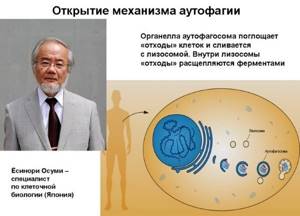
As it turned out, the cell, in the event of a food shortage, digests itself. Damaged and outdated structures immediately begin to be used up. Thanks to this, rejuvenation occurs at the cellular level. Despite this, with constant starvation the process provokes the complete destruction of the cell.
The human body is not yeast, but the cells it consists of can also boast of such a phenomenon, determined at the genetic level. In the human body, it starts when there is a shortage of animal proteins.
When replacing some of these proteins with plant analogues, cellular autophagy or slowing down the aging process occurs. This, in turn, reduces the likelihood of cancer and cardiovascular diseases. This is what, according to the scientist, is the basis of the fasting system. Osumi claims that fasting according to his method can fight cancer and dementia.
Continuing his research, the scientist looked at intermittent fasting and the effect it has on muscles, giving them a kind of “nutrition window” - a period when a person eats food. For example, if you have breakfast at 7 am, the described period opens at 8 am. If dinner falls at 10 p.m., the window can stretch to 14 hours.
Experiments carried out on animals revealed that those individuals who sometimes starved felt much better, lived longer and were less sick than those who ate normally. It should be noted that the quality of food for all animals was at the highest level. This proves the theory that a small window of nutrition is good for the body.
Basic principles
The basic principles of intermittent fasting are the following:
- breakfast must include complex carbohydrates, followed by a meal based on protein foods;
- you should eat in small portions, at least 3 times within 8 hours;
- any sports exercises must be performed on an empty stomach (before training, it is recommended to drink 10 g of amino acids, which will need to be diluted in water).
Intermittent fasting has several varieties, namely:
- long-term, which requires following a diet for 30 days;
- short-term;
- alternating is based on normal meals and diet days.
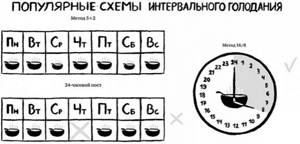
The choice of the type of diet will depend on the goal:
- build muscle mass;
- lose excess weight;
- strengthen the immune system, as well as strengthen the body's defense reactions.
How to properly start the autophagy process?
To “wake up” the body and start cleansing mechanisms, you need to:
- increase physical activity, it is advisable to visit the gym, swimming pool; fitness, Pilates, intense cardio training, jogging;
- 3 r. a week to completely give up protein foods;
- forget about fast food and junk food and drinks (cola, chips, crackers);
- minimize alcohol (appetite increases, control over the amount of food is lost);
- count calories daily, do not overeat;
- Once a week – fasting day according to the Osumi system.
Indications
Yoshinori Osumi - fasting (a technique shown in the fight against various diseases and problems), which plays a very important role in the life of every person. All people use preservatives, dyes, breathe polluted air and at the same time accumulate a lot of “garbage”.
The cells themselves can cope with this, but it wouldn’t hurt to help them. That is why it is necessary to carry out such short-term fasting from time to time.
Fasting will be especially useful for those who:
- has an age that exceeds 50 years;
- plans to conceive a baby in the future (to avoid the risk of cerebral palsy);
- falls into a risk group for oncology (due to a hereditary factor);
- suffers from obesity and excess weight, since it is fat cells that accumulate the maximum amount of harmful substances.
The mechanisms of autophagy described by Yoshinori Ohsumi, for which he received the Nobel Prize, are closely related to therapeutic fasting , and his discovery gives hope for a cure for diseases for absolutely everyone and even those who cannot be helped by modern medicine.
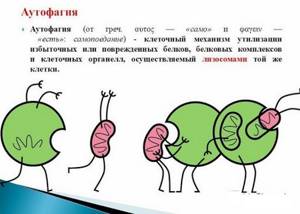
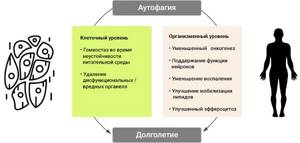
Autophagy, as a phenomenon, according to the Japanese scientist, makes it possible to fight cancer pathologies and dementia. It should be noted that this discovery was made in the 60s. It was during this period that scientists did not attach much importance to this phenomenon. Autophagy is the process of utilizing and recycling all waste in the human body.
It is thanks to this mechanism that the cells renew themselves, and also remove toxins and toxic substances from infections that have penetrated from the outside. The process also occurs in the body under stress, when a person is hungry.
Autophagy is a kind of internal program that is concentrated in the body, freeing it from old unnecessary cells, leaving and renewing good ones , thereby rejuvenating the person as a whole. It is thanks to this mechanism that a person is not susceptible to cancer, infections, diabetes and other dangerous diseases, and the immune system becomes much stronger and metabolism improves.
To burn all consumed carbohydrates, the body needs from 8 to 12 hours. This means that fasting must last for at least 24 hours. Despite this, it is worth remembering that fasting for more than 3 days can doom the body to severe stress, since the cells do not receive the necessary mineral elements, which, in turn, will weaken the immune system and lead to a deterioration in the general condition of the body.
Nobel Prize Yoshinori Ohsumi
The phenomenon of autophagy and the breakdown of cytoplasmic material in lysosomes was first discussed by Belgian biochemist Christian de Duve in 1963. And in 2021, molecular biologist Yoshinori Ohsumi studied the mechanism in yeast cells using a genetic method.
Result: identification of over ten genes that lost activity partially or completely, which led to autophagosome defects. The discovered genes, called ATG (autophagy-related genes), were studied and cloned. More than 30 have been discovered so far.
A Japanese scientist has found that autophagy is encoded in the genome. Disabling or mutation of the gene required to activate the mechanism prevents the process from proceeding successfully.
The cell experiment was repeated in a transgenic mouse to discover new forms of the protein. Thanks to the visualization of autophagy by fluorescence microscopy, it was possible to study the kinetics and intensity of the mechanism in various organs of the animal at the time of food refusal.
Disabling the ATG genome led the Japanese scientist and his team to the discovery of the physiological significance of the component in the development of mammals, including humans. The discovery of the mechanisms of autophagy made the scientist from the Middle Kingdom a Nobel laureate in 2016.
Contraindications
The fasting method developed by Yoshinori Ohsumi is not suitable for all categories of people. Before carrying out the procedure, be sure to familiarize yourself with its limitations.

Fully intermittent fasting is contraindicated in the following conditions:
- anorexia;
- pregnancy;
- age under 18 years;
- breast-feeding;
- exhaustion;
- low BMI;
- oncology;
- open form of tuberculosis;
- pathologies associated with the activity of blood vessels and the heart;
- problems with liver and kidney function;
- rickets;
- thyrotoxicosis.
The technique also has some limitations, about which you must consult your doctor. This includes:
- gout;
- constant use of medications, including oral contraceptives;
- diabetes.
Useful tips
Yoshinori Osumi - fasting (the method involves proper adherence to the diet, as well as basic recommendations in order to achieve the desired result), which is based on fluctuations in circadian rhythms. It is necessary to observe not only the interval, but also to choose the right time , since the human body reacts to the change of night and day by releasing certain hormones.
In the morning, cortisol is released, which, in turn, increases body temperature and appetite, and also accelerates metabolic processes. The person becomes cheerful and filled with energy. As a result, this becomes the most important and appropriate time to eat the main meal.
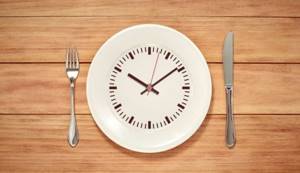
In the evening, melatonin, the sleep hormone, is produced. At the same time, the human body prepares for rest, digestive processes and metabolism slow down, and body temperature decreases.
Internal rhythms may become disrupted if food is taken in the evening:
- Cortisol levels are low in the morning, so a person is not very energetic.
- In the evening, cortisol in the blood rises, activity appears with a feeling of hunger, but the body should rest.
- As a result, metabolism is disrupted, obesity and diabetes occur.
Peak cortisol release occurs at 8, 13 and 19 hours. After 2 hours after the surge, the hormone level decreases regardless of whether the person has eaten or not.
That is why it is very important, if you experience a great feeling of hunger that occurs with a certain frequency, to wait for a while. Drinking a glass of kefir or water can help with this.
The creator of the Japanese diet identified the relationship between weight loss and the ratio of caloric content of dishes consumed for breakfast and lunch. If you eat a higher calorie breakfast and a less calorie lunch, your weight will drop faster.
To set the 24-hour clock, follow these steps:
- get out of bed no later than 7 am;
- eat food 1 hour after getting up;
- make breakfast higher in calories than lunch;
- have lunch after 12 noon;
- Move the last meal to 14-16 hours of the day, thereby reducing the interval between the last meals to 8 hours.
If you eat food in this mode, the body utilizes fat reserves at night, and during the day the person does not experience a lack of energy. At the same time, sleep and overall well-being improves.
During the period of adaptation to the new regime, the body will experience hunger after 19 hours. In this case, it is permissible to eat a small amount of fresh fruits or vegetables. This will allow the body to get used to the updated conditions and normalize sleep with appetite.
Negative effects of the method on the body
The benefits of the eating window for weight loss for ordinary people are undeniable. But there are several groups of patients for whom this regimen is not recommended. These are mainly people with severe forms of illness.
Contraindications for the Nobel Prize-winning Japanese doctor's diet:
- gastritis and peptic ulcer;
- diabetes;
- IHD;
- mental disorders;
- pregnancy and lactation;
- hypotension.
In these conditions, narrowing the food intake interval can worsen the course of the disease. For others, the eating window for weight loss is an absolutely safe method of weight loss, cleansing and rejuvenation.

Preparatory actions
To eliminate the harmful effects of a diet according to the 16/8 scheme, you need to properly prepare:
- it is necessary to gradually reduce the amount of fried, sweet, fatty and flour products, as well as fast food;
- you need to calculate the BZHU norm and adhere to it;
- you will need to increase your physical activity by including walking or jogging;
- You should keep a food diary, where you need to record each meal with calorie counts;
- you need to reduce the amount of calories in your daily diet.
Withstanding the feeling of hunger is quite a difficult task, not only on a physical level, but also on an emotional one.
To ensure that the treatment is as effective as possible, you should adhere to the following tips:
- conclusions about fasting should not be made immediately after it ends, since they will be visible after 30 days;
- you need to exit the system gradually, without abusing food (otherwise there may be a disruption in the gastrointestinal tract);
- the amount of liquid per day should not be less than 2 liters, since a large volume of moisture helps speed up metabolism and remove toxins and waste from the body;
- before a hunger strike, you should prepare yourself psychologically, for this it is very important to have a good rest and gain strength;
- Drinking warm liquids in small sips (for example, green tea or purified plain water) will help reduce hunger.

To properly exit the diet, you need to think about the required number of servings, which are small in volume, with a minimum fat content, without harmful foods and of high quality.
Rules for intermittent fasting
Please note that until you get used to hunger, you can drink green or lightly brewed black tea without additives. The desire to eat something will be wave-like. As soon as a person drinks water, hunger goes away for several hours. Other rules of the intermittent fasting technique:
- During fasting, monitor your own sensations.
- Enlist the support of your loved ones.
- Drink plenty of water both during abstinence and during your eating window.
- Come out of fasting gradually - do not overeat the next day after finishing the method.
- Do not draw conclusions earlier than after a month of regular compliance with the rules.
- Don't let yourself think about hunger, get busy.

Scheme
Yoshinori Osumi - fasting (the method consists of several nutritional plans that each person chooses independently, based on his schedule), which can be compiled based on the following scheme:
| Time | What is allowed |
| 8:00 | 250 ml of clean water. |
| 9:00 – 10:00 | A coffee drink without milk or unsweetened tea. |
| 11:00 | 5 g of amino acids, which must be diluted in 250 ml of liquid. |
| 12:00 | Active sport. |
| 13:00 | A hearty breakfast, which includes taking 50% of the daily ration. |
| 17:00 | Lunch, the calorie content of which is 30% of the total norm. |
| 20:30 | Dinner based on protein foods, providing approximately 25% of the daily requirement. |
| 21:00 | Starvation. |
The schedule may have different hours. It is necessary to adhere to the main principle of nutrition, namely: fasting for 16 hours.
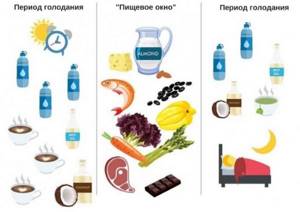
A diet compiled according to the 16/8 scheme must saturate the body with nutrients. Therefore, it is imperative to use:
- proteins (for example, mustard seeds, cocoa powder, tuna, egg whites, sturgeon caviar, beans, mushrooms, nuts, poultry and cottage cheese);
- fats (lamb, fatty fish, dark chocolate, pork, cheese, butter, cream with kefir, cottage cheese and sour cream are suitable);
- carbohydrates (you can use vegetables with cereals, pasta, fresh berries and fruits, dried fruits, honey, marshmallows, marmalade, bread and diet cookies).
Main menu
The main daily menu might look like this:
| Day of the week | Breakfast | Dinner | Dinner |
| Monday | Curd mass with honey, fresh berries and fruits. A slice of whole grain bread spread with peanut butter. | Chicken soup, 200 ml of tomato juice and a salad based on green beans and carrots. | 200 ml low-fat kefir and a protein omelet. |
| Tuesday | Boiled rice porridge, bread with marshmallows, coffee with cream or milk. | Vegetable salad and chicken julienne with mushrooms. | Fish steak, curd mixture with herbs and basil. |
| Wednesday | Milk oatmeal with berries and butter. | 200 ml apple juice, vegetable salad and tomato-based puree soup. | Steam chicken breast and a couple of boiled eggs. |
| Thursday | Cheesecakes with berries and honey, tea or coffee drink with milk, and marshmallows. | Boiled chicken breast with buckwheat and sliced vegetables, as well as berry juice. | Tuna meat with baked pepper and tomato. |
| Friday | Casserole based on curd mass with sour cream, dark chocolate and tea drink with honey. | Steamed chicken cutlets, baked vegetables and fruit juice. | Boiled breast with vegetable salad. |
| Saturday | Pasta complemented with red fish and stewed vegetables. | 200 ml orange juice and kefir okroshka. | Protein omelet, salad based on herbs and seafood. |
| Sunday | Salad based on tuna, sweet pepper and boiled potatoes, as well as tea with dried fruits or coffee. | Spaghetti, salad based on vegetables. | Baked turkey fillet, as well as a salad based on eggs and cucumbers, dressed with sour cream. |
Between main meals, it is necessary to have small snacks. You will also need to drink a lot of clean water.
When to expect an effect
Intermittent fasting is highly effective.
Short-term refusal of foods has a beneficial effect on the general condition of the body:
- the activity of internal organs and systems is restored, which results in overall health improvement;
- life expectancy increases, the aging process slows down, which allows you to preserve beauty and youth for a long period of time;
- the immune system is strengthened and restored due to the fact that all dangerous bacteria and substances that are the main factor in the emergence of various diseases are removed from the body;
- brain activity improves (a person begins to easily concentrate on different objects and solve problems);
- well-being improves, as a result the person feels very good and becomes more active.
If you follow the diet, you may not experience any changes. Results will be noticeable after 30 days.
If you choose the right menu for intermittent fasting, as well as properly organize your diet, you can lose excess body weight and improve your quality of life. Thanks to the Yoshinori Osumi technique, your well-being improves and painful sensations go away. At the same time, a person is able to develop the habit of maintaining a strict regime, self-control and willpower. Due to this, character is developed and complexes go away.
Fasting not only helps you lose weight, but also benefits your entire body and improves your overall health.
Bodymaster.ru recommends Fitness Trainers:
By practicing one-day fasting, cells search for resources to support life and get rid of toxic substances, which promotes recovery. You should not go to extremes, since a systematic calorie deficit leads to destructive processes and metabolic disorders. Therefore, doing therapeutic fasting 1 day a week or following the principles of intermittent fasting is good for your health.

Conclusion: the process of autophagy is impossible with limited calorie intake, there is no special diet. All that is required is a one-day fast once a week or another convenient scheme.
What activates autophagy
Temporary lack of nutrients is the main factor in triggering the autophagy mechanism with the help of glucagon. The hormone is closely related to another hormone – insulin:
- an increase in insulin (food intake) leads to a drop in glucagon levels;
- a drop in insulin (one-day fasting) leads to an increase in glucagon.
Cellular self-cleaning detects spent components, marking them for subsequent elimination. The accumulation of non-standard elements becomes a trigger for aging. In addition to autophagy, the benefit of fasting for a day is to stimulate the production of growth hormone, which activates the production of new cellular components. This leads to renewal of the body.
The autophagy mechanism must be kept under control to prevent harm to the body.
